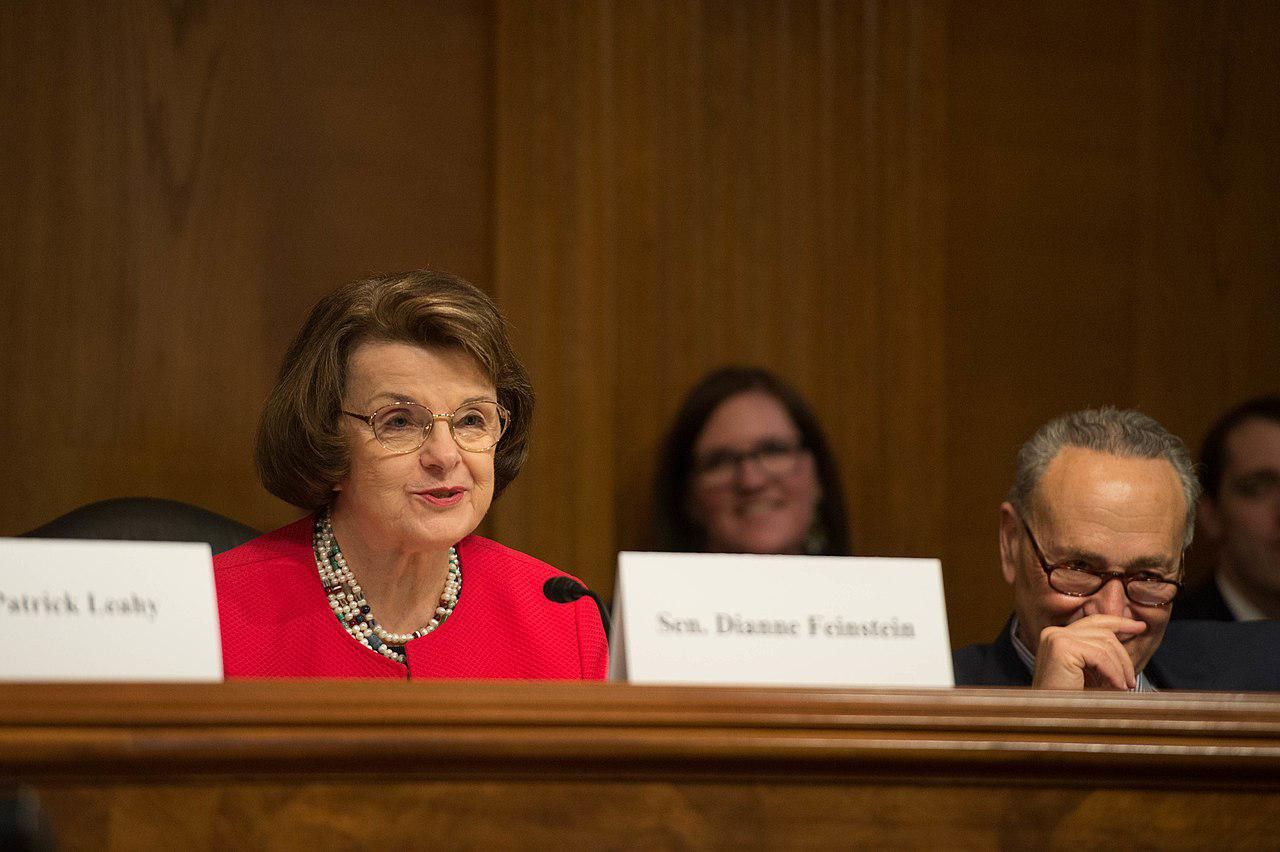The Timesrevealed last week that US Senator Dianne Feinstein, the eldest member of the US Congress, was much sicker than previously understood. She didn’t have just shingles. She had brain shingles. As Lindsay Beyerstein noted, in the Editorial Board, she “returned to Washington a shadow of her former self, with some observers describing her physical decline as ‘frightening.’”
“Feinstein’s failure to disclose the full extent of her illness is a profound breach of trust,” Linsday wrote Friday. “It makes you wonder what else she’s hiding.”
Much of the discussion about Feinstein’s health has blurred into debate over geriatrics generally, particularly the so-called “gerontocracy” in which our leading figures are said to be too old to serve. Critics say they aren’t being ageist. They say refusal to step down is rooted in arrogance and selfishness.
READ MORE: The Feinstein mitigation team tries and fails to hide her 'frightening' decline
Perhaps, but I want to point out something about Feinstein’s critics. They seem to be satisfied by arguments that demonstrate that she is showing clear signs of cognitive decline. They seem to believe that, by demonstrating such clear mental deterioration, that they have made their point – that she should resign.
They haven’t, though. The immediate counter to that argument is, well, so what? So what if Dianne Feinstein is showing signs of cognitive decline? Is it preventing her from voting the way a majority of Californians want her to vote? More importantly, is cognitive decline worse than the alternative?
I’ll get to the alternative in a moment.
The Post’s Kathleen Parker seemed to think, in her recent piece, that the rightness of her argument was self-evident. She said that Feinstein looked “weak and diminished” and that “she was in town to resume work, she said, while also saying she’d been at work all along, as though she’d never left.”
READ MORE: Concerned colleagues say Dianne Feinstein 'shockingly diminished' upon return to Senate: report
Parker then recounted this oft-recounted scene: “When a reporter asked whether she meant she had been working from home, Feinstein said, ‘No, I’ve been here. I’ve been voting. Please — you either know or don’t know.’”
This is not the homerun Parker seems to think it is.
The truth of anything is determined by its consequences, and whether those consequences are useful to the project of greatest possible human happiness.
In the context of aging figures in this so-called gerontocracy of ours, the truth of their “mental fitness” is best determined by the consequences of it. In brief, can they do what needs doing? If not, is that worse than the alternative?
The alternative is this, in part: If Feinstein resigned today, California’s governor would select a substitute until voters in that state choose a replacement next year. This is usually where arguments by Feinstein’s critics end. In their minds, she can’t serve adequately. She is showing clear signs of cognitive decline. Refusal isn’t just selfish, they say. It undermines the goals of the party.
But, as I said, that’s part of the alternative. The other part features the Senate Republicans and their eagerness to sabotage Joe Biden and his judicial agenda.
Feinstein’s replacement, whether appointed or elected, will not automatically sit on the Senate Judiciary Committee. The Senate Republicans know that if she resigns, they will have a rare opportunity to block nominees to the federal judiciary or even to the Supreme Court. They will use the two-thirds rules – the filibuster – to prevent a replacement from taking up where she left off.
Feinstein’s critics say that she should go for the sake of the party. But if they fully understood the consequences of what they are demanding, they’d understand that, for the sake of the party, Feinstein should stay where she is.
To be sure, she is showing clear signs of cognitive decline. But, again, so what? She has said she won’t seek reelection. Her storied career ends next year. And compared to the alternative, in which the Republicans paralyze the Senate Judiciary Committee, a few more months of watching Feinstein dodder along seems unimportant. Uncomfortable, I admit, but relatively unimportant.
I expect the counterargument to my counterargument to go something like this: Isn’t it a shame that we must choose between a senator showing clear signs of cognitive decline and Senate Republicans prepared for sabotage?
To which, I say: what are the consequences of this “shameful” choice? Helping an elderly senator dodder along for a few months? All old people need help. Not all of them get to choose, with their vote, the next generation of jurists.
This choice isn’t a shame.
It’s a blessing.
READ MORE: 'No, I haven’t been gone': Dianne Feinstein doesn’t remember absence from Capitol
From Your Site Articles
- Susan Collins helps sink hopes of replacing Dianne Feinstein on Judiciary Committee ›
- 'Causing great harm': AOC nudges Dianne Feinstein to 'consider' resigning ›
- Should Sen. Feinstein resign? ›
- 'Things could get weird': California GOP could be a key factor in Dianne Feinstein's fate, report warns - Alternet.org ›
- 'Mother Nature always wins': Conservative contemplates a future Senate’s without McConnell and Feinstein - Alternet.org ›
Related Articles Around the Web
